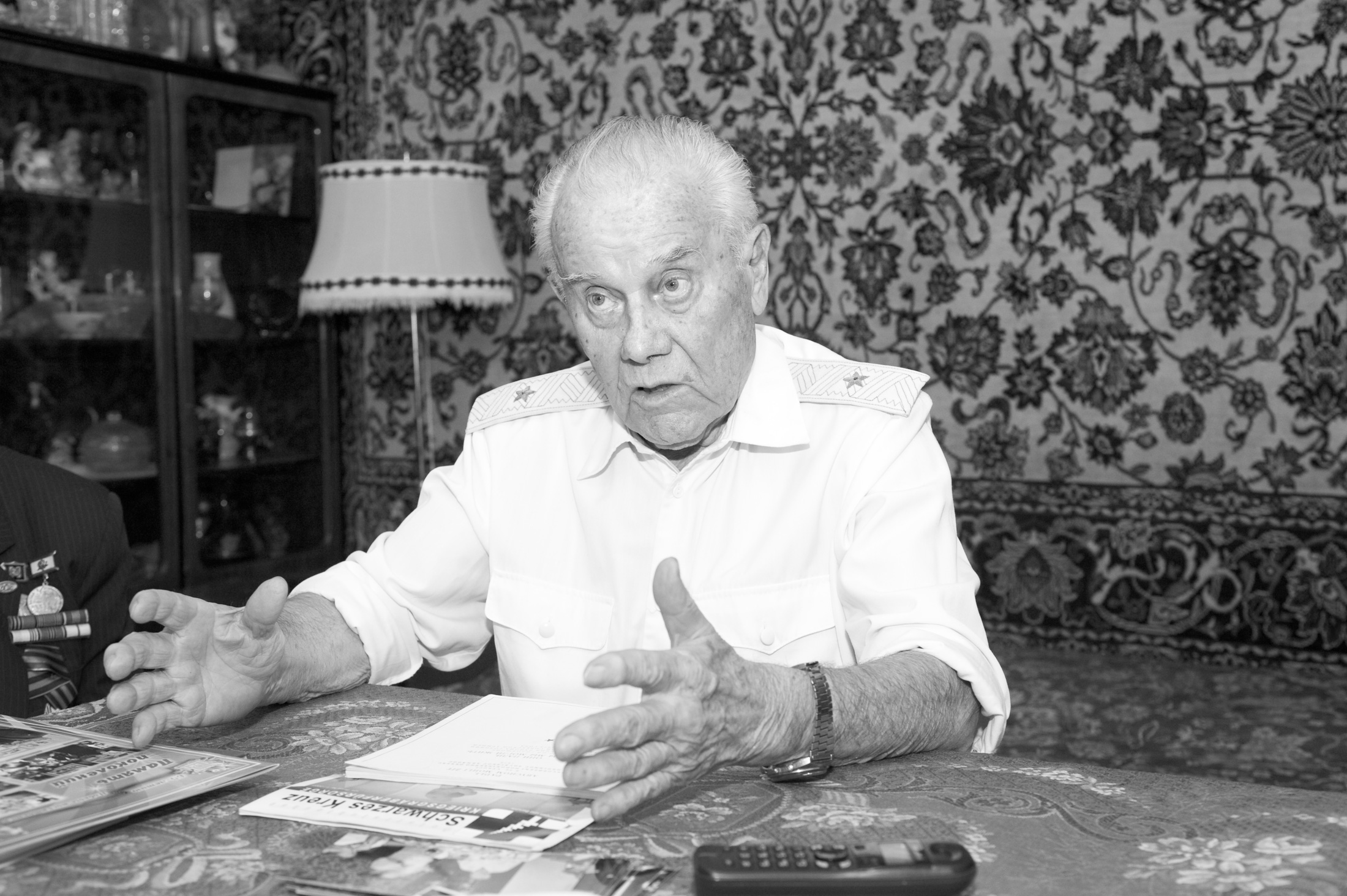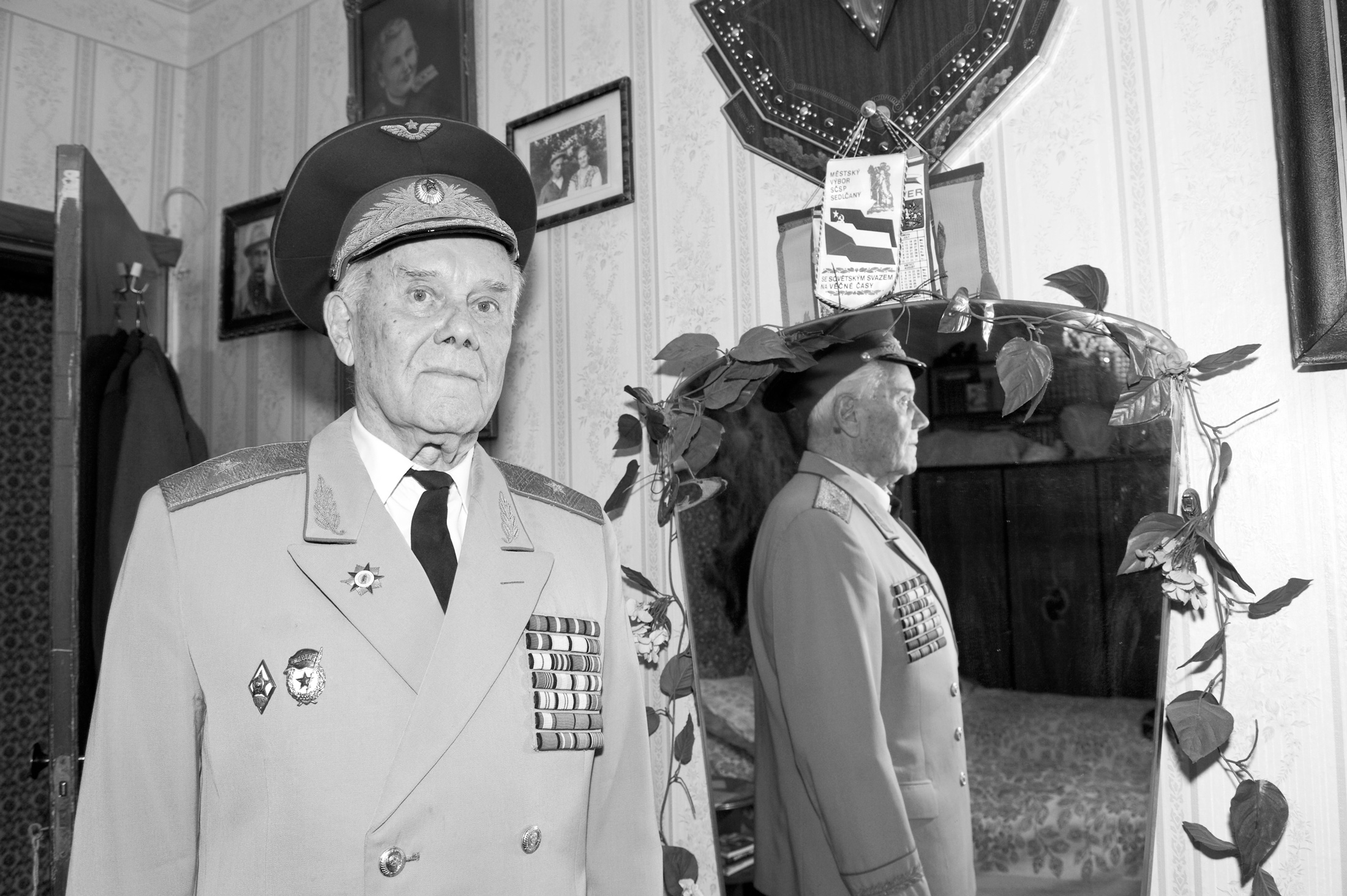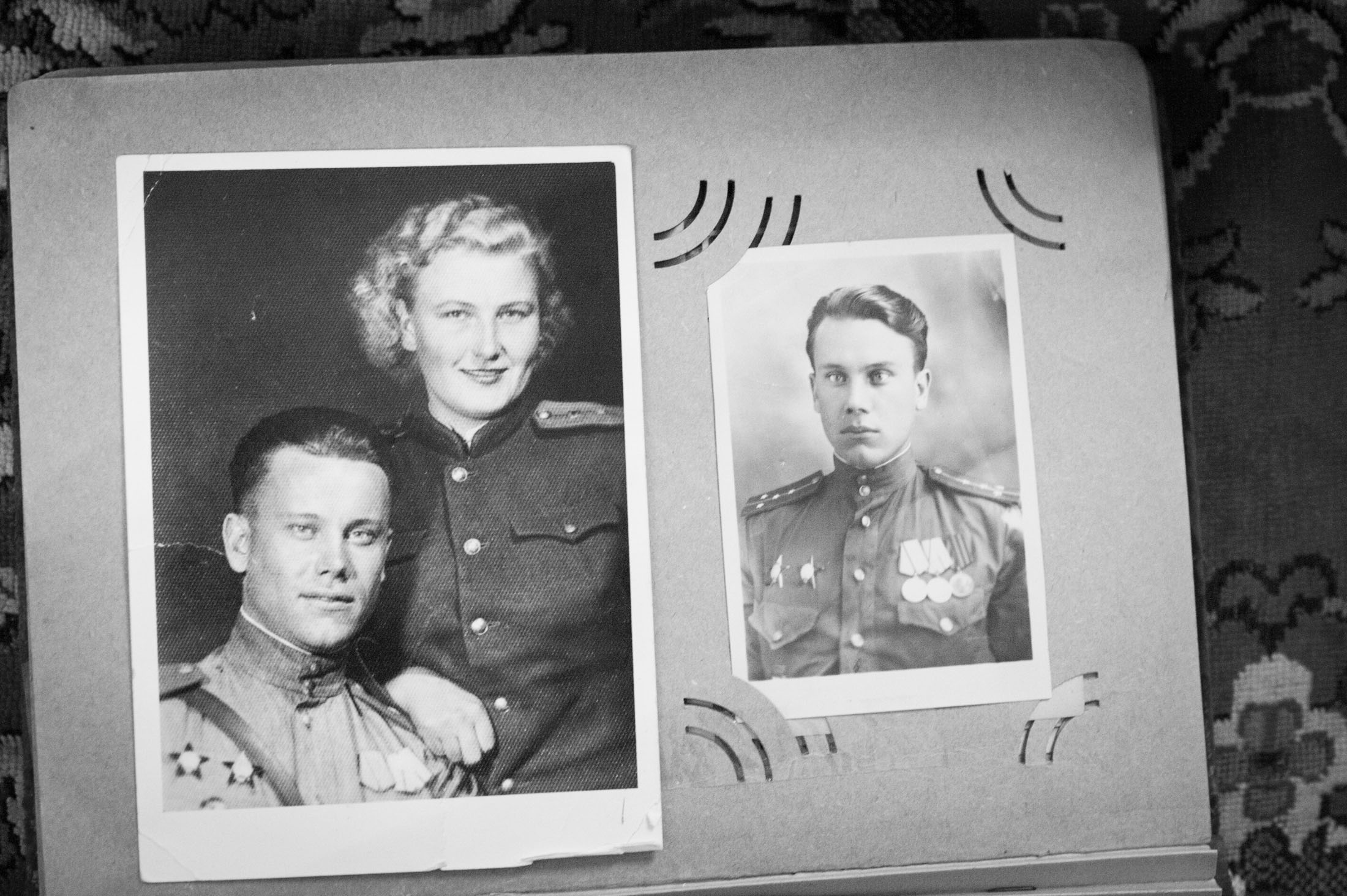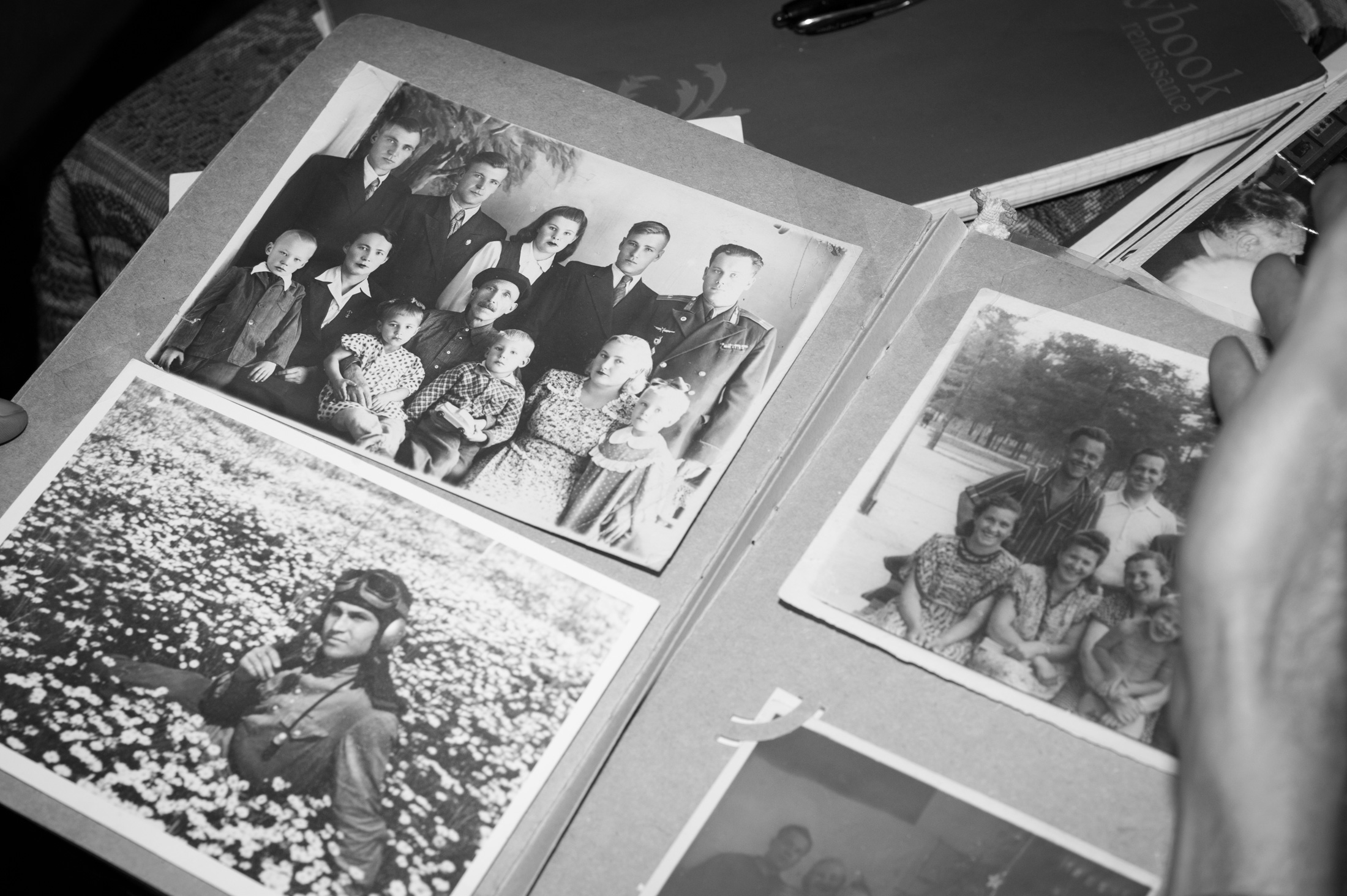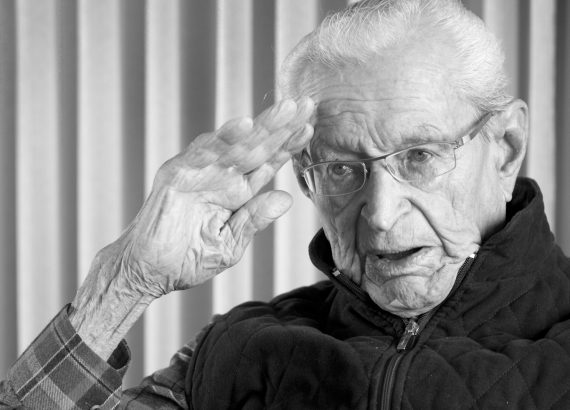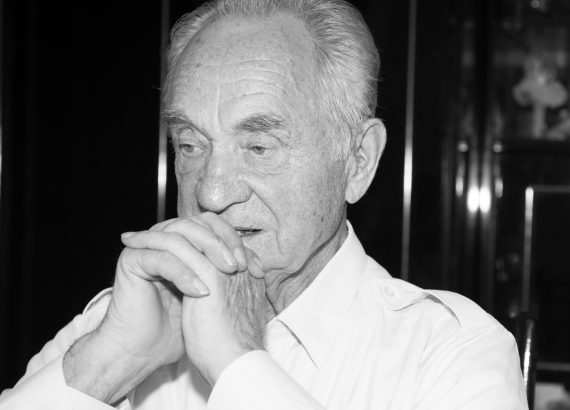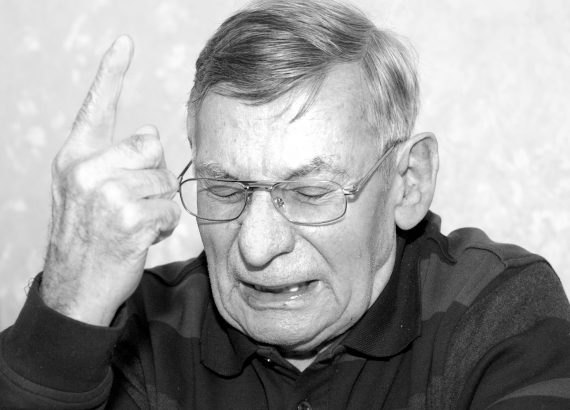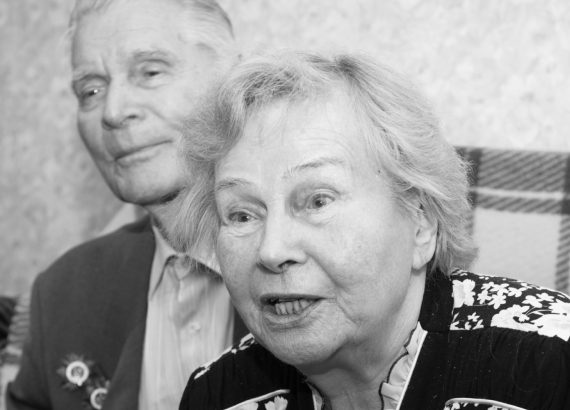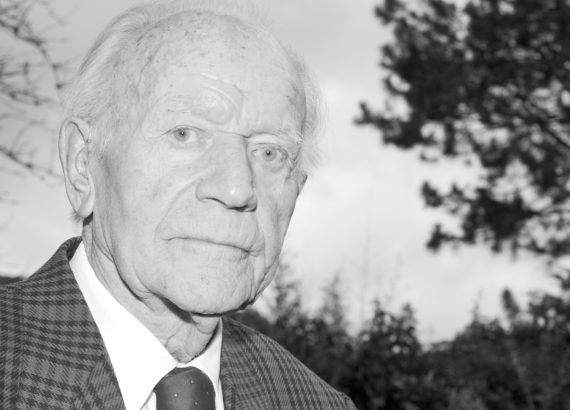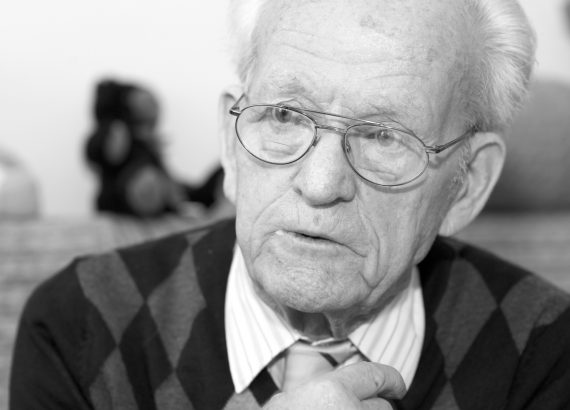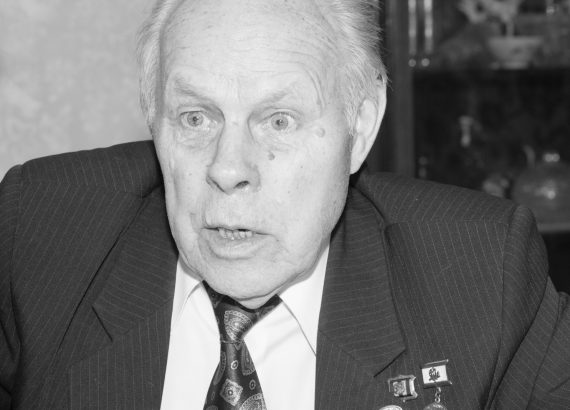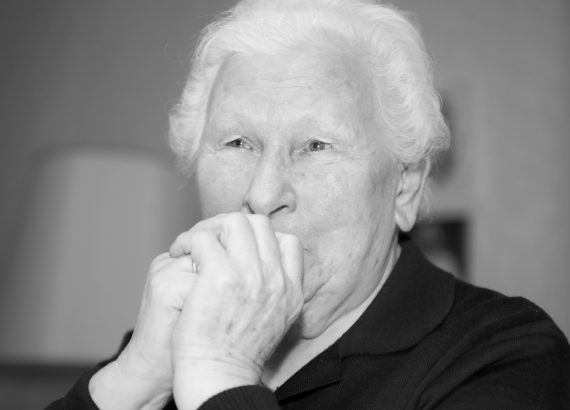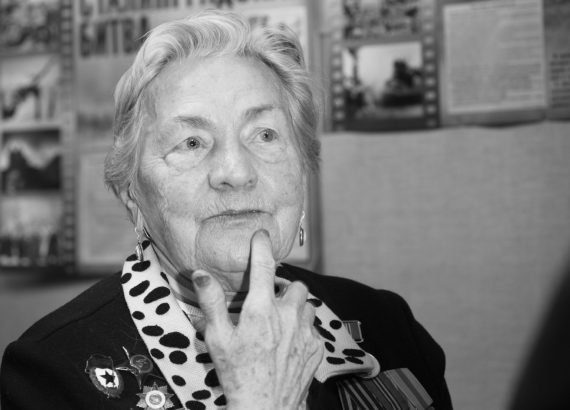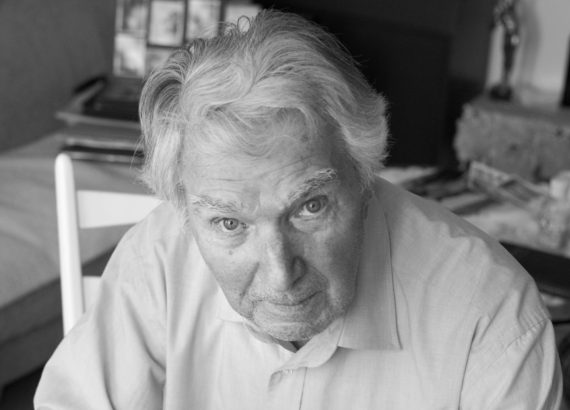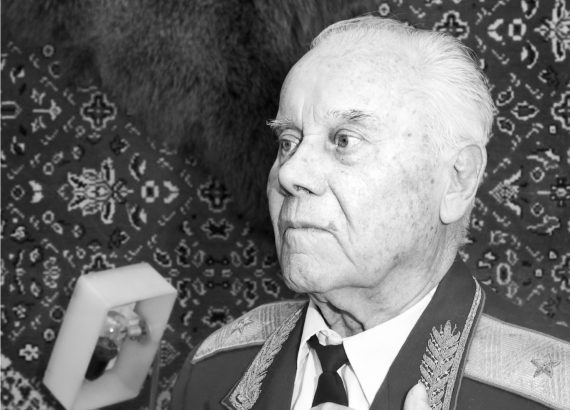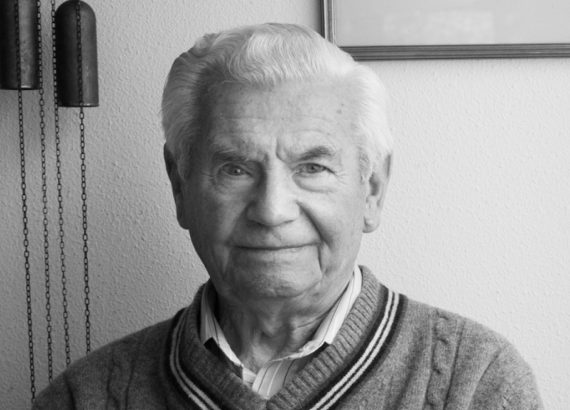You were a cryptographer during the Battle of Stalingrad. Do you recall any memorable episodes connected to your work?
That was war. There were no pleasures or pastimes. There was only one goal: doing your duty. Do it with total commitment, day or night, fair weather or foul. “Car-ry it o-ut!” A soldier on guard duty may not seem to be doing much, yet he is discharging his duty. My duty is documents. Always documents. That comes with a high sense of responsibility: that’s what I’m doing for the war effort, for bringing the victory closer. That was almost my… (does not finish the sentence)
Did you ever fight against the Germans face to face?
No, and never went over the top with a “Hurrah!”
So the first Germans you saw were POWs?
Yes, they would be brought to division headquarters, interrogated, processed, but I never saw any of them being shot. Don’t know what the case was during the fighting itself on the battlefield, but there were no executions at headquarters. And they were always screened. Probably special departments had their say on the matter. Field commanders perhaps would try to receive some information from the prisoners, but those of no interest were sent to the rear, I can’t tell where exactly.
One more question. What was a “Fritz” the way you understood it at the time?
Well, a Fritz was a German! We were trained to see him as an enemy that was to be destroyed. Though at the same time we realized that it was a simple soldier – not an enemy by nature. Not every German, I think, was convinced that what their high command was doing was right – beginning with the very fact of attacking the Soviet Union. So I personally didn’t feel this primeval, murderous hatred for them. I understood that an enemy soldier was the adversary –not necessarily the enemy. Like in chess, where there is also an adversary. So I never felt the urge to put a bullet in one, let alone a POW.

